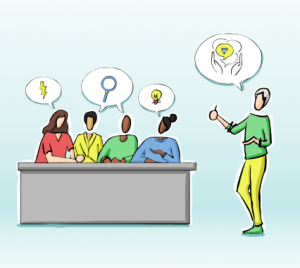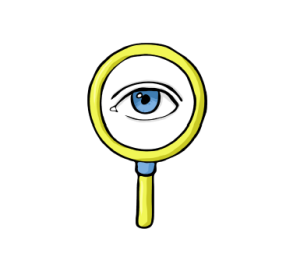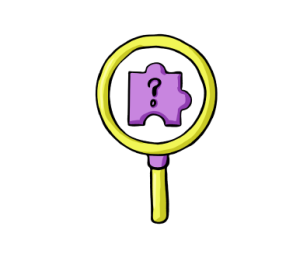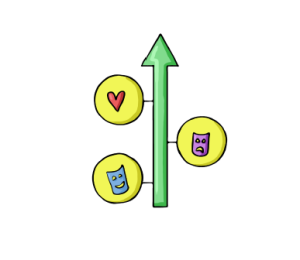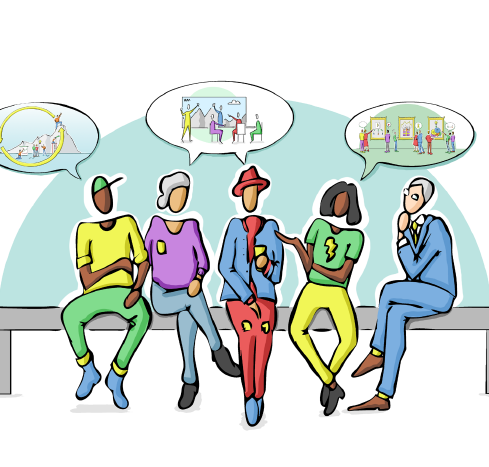Home
This method has been created to support educators who aspire to make their university degree programmes easier to navigate, free of hidden clues and enjoyable enabling students to concentrate on the meaningful learning journeys instead of on trying to second guess what it is they should be doing.
We refer to a degree programme as academic qualification which students usually complete at university. It can typically be classified as an undergraduate or Bachelor degree that usually takes 3-4 years to complete, or a postgraduate or Masters degree that takes 1-2 years to complete. There are other variants of degree programmes such as work-based apprenticeship programme or PhD research programme.
You can apply the method on any education experience that has a beginning and an end and is designed for a specific cohort of learners. It can be called a course, a module or a scheme, we continue referring to a “programme”.
It includes students and staff, academic and professional, in reviewing the learning experience and proposing improvements based on their University lived experience. It complements other forms of feedback collected such as student surveys and scores of teaching quality.
The method enables a review of degree programmes inclusive of student voice and has been inspired by the quote below from an undergraduate business student:
“I am aware that some students will always complain… but it is important to create a challenging yet attainable environment in university by preparing students to strive and not expecting them to figure it all out all alone. It is a general consensus that’s students do not know what is expected of them…”
This method is based on applying service design principles to education as a system. Service design is a human-centred approach to helping people achieve what they set themselves to do. In this context we have framed a degree programme as a service designed by educators for students to help them develop their personal and professional skills, gain new knowledge and also establish new networks. By designing we mean conscious transformation and change to better acknowledging students’ needs.
This workbook is based on the key service design principles outlined by Mark Stickdorn (2018) :
1. User-centred – it focuses on the people who are at the receiving end of the service, who are affected and who are acknowledged as human beings with feelings
2. Co-creative – it is a team sport and it is collaborative, it acknowledges the need for diversity of input
3. Sequencing – it helps us see what we do as a film, as a sequence of episodes that are interrelated and connected, the before, during and after
4. Evidencing – it is making the invisible and intangible very real, helping us see the unseen steps our users undertake and evidence they keep as a result of experiencing the service.
5. Holistic – it takes into consideration the full context, the system we are a part of, the smell, the feel, the touch.
Context mapping – understanding the bigger picture and the place of your programme within the wider University system.
Evidence safari – playful way to explore all you can find about the programme as if you went on an expedition to observe those sometimes rare and hidden finds of information. Just like using a Safari browser!
Research wall – visual place where you gather all your insights. It is good to have a folder with all the documents you find but how about making a visual board, even a digital one, where you can easily see the main themes arising. Visualisation is a key approach to design and in the research stage it moves us away from piles of papers to an easy to relate to summary that you can share in one slide or on a digital, or physical, board.
Student persona – a profile of a typical student based on facts you know about your students (e.g. nationalities, gender, age) complemented with the input from your students
Journey mapping – a visual representation of students experience on the programme mapped on a programme timeline enhanced with students’ emotional experience of a range of events they record on their journey
The method is underpinned by the concept of co-creation, which means that students and staff involved in the programme reflect together on the programme experience and engage in outlining potential improvements in partnership.
The Inclusive Programme Review method has been tested with more than 300 students leading to heightened sense of being valued, heard and consulted about their university experience. Students involved have appreciated an opportunity to share their emotional learning experience and being able to pause and reflect whilst becoming a part of continuous improvement journey of their programme for future student generations.
Who is this method aimed at?
We hope to speak to anybody responsible for a University degree programme – programme directors, leaders, managers, administrators, whatever your job title. And anybody with a passion for making education better for students and staff. If you ever think about these questions, then you have arrived at the right place:
What if our students had a better experience on the programme?
What if the programme team had a better understanding of students’ challenges?
What if we had more time to plan our improvements in a proactive manner?
What if our programme was the best at the University?
What will you gain from the method?
We hope the method will equip you with another way of looking at how programmes are perceived and experienced by students. You are probably conversant with other improvement methods, which will be complementary to this human-centred lens. It is not an easy fix method and its exploratory and empathetic nature may take you to some more emotional aspects of running a degree programme. It is useful to approach this method with a colleague who is passionate about your programme, which allows you to share and debrief and bounce ideas.
What will students gain from it?
From our experience, students were sceptical at the beginning because we always ask them for feedback but they do not really understand why. Approaching students as partners and as key programme stakeholders with valuable insights enhances their pride in the programme, their sense of belonging and their commitment to do well. They will remember that you took the time to ask them about what it was like to take their first exam without judging their answer.
And finally….
Enjoy this method and simply give it a go. It is rewarding and students do appreciate being treated as human beings with feelings, fears, hopes, dreams and expectations.
Content
